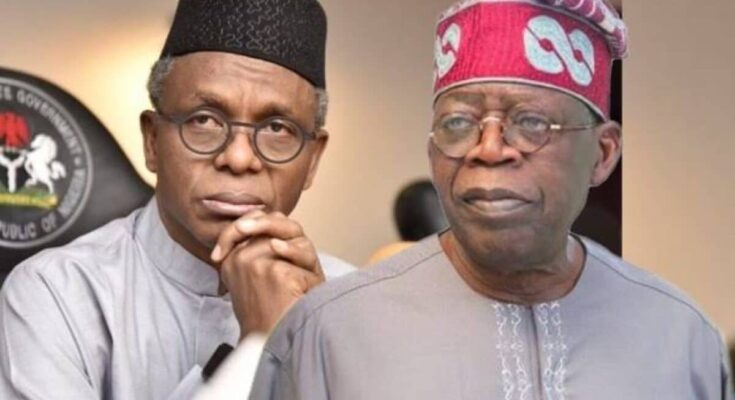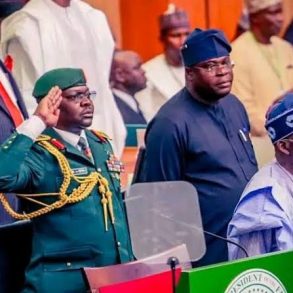The Forum for Transparency and Accountability in Governance, an advocacy group, has cautioned President Bola Ahmed Tinubu on Friday against appointing any politicians with pending fraud allegations in his administration, even if they claim party loyalty.
This advice came as President Tinubu is expected to present his list of ministerial nominees to the Senate within a statutory period of 60 days.
The group’s convener, Dr Bala Musa Mustapha, Secretary-General, Mr Nouel Malama, and Director of Publicity, Nafisa Hamid Jika, jointly issued a statement.
They urged President Tinubu to exercise caution and avoid appointing politicians with questionable reputations.
The group singled out Malam Nasir El-Rufai, former governor of Kaduna State, advising that he should be kept away from the corridors of power.
El-Rufai is currently facing trial for alleged embezzlement of N32 billion from the sale of Federal Government Houses between 2005 and 2007 during his tenure as minister of the Federal Capital Territory.
The group referred to a 2019 ruling by Justice Binta Nyako of the Federal High Court.
She had asserted that El-Rufai could not prevent the Economic and Financial Crimes Commission (EFCC) from investigating and prosecuting him over the fraud allegations.
The group encouraged the EFCC to resume El-Rufai’s prosecution, which was put on hold when he assumed office as governor in May 2015, due to the immunity of the office.
They cited a damning audit report by Akintola Williams Deloitte and Aminu Ibrahim & Co, which indicated that the N32 billion proceeds from the sale of Federal Government Houses were missing.
The group emphasized in their statement: “Any government that prides itself in probity and accountability should not be seen to patronize the likes of the former governor of Kaduna State.”
They hoped President Tinubu would respond correctly on the El-Rufai issue, and urged him not to force Nigerians to protest before taking appropriate action.
The group concluded by urging the EFCC and other anti-corruption agencies to diligently prosecute both former and current public officers with pending cases.
They expressed concern that failure to do so could be interpreted as selective prosecution of corrupt government officials.





